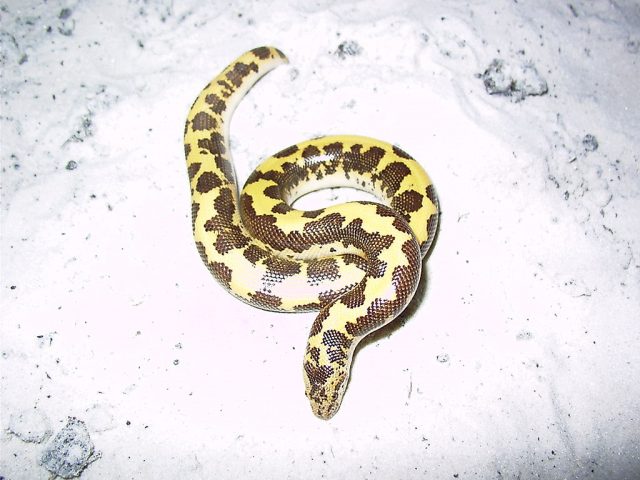Type the name of the breed you're looking for below
[wpdreams_ajaxsearchlite] Don't see the breed your're looking for? Click here and let us know!
Kenyan Sand boa
| Place of Origin and Range | A native species in the deserts of Kenya and Tanzania. |
| Description | The brown to olive background colour is marked dorsally and laterally with irregular patches of white, buff, yellow, or orange. |
| Morph Patterns Available | Yes |
| Adult Size | Females can reach 2 feet(0.6m), males are considerably shorter but slightly more built. |
| Accommodation | A desert savannah with 3-5 inches of sand to allow for burrowing. You will want to include a large dish for bathing and soaking in to improve shedding. Always include a day basking spot at 80'F(27'C). Along with multiple hides. Minimum 2 x 2 x 4 feet for an adult. |
| Lifespan | Can live 15+ years |
| Feeding / Diet | Like most snakes a Kenyan Sand Boa can eat mice, rats, and rabbits depending on the size of your snake and the availability of feed. Newborns also like to eat tree frogs and lizards. |
| Breeding | Viviparous they breed readily November through April in the United States delivering live birth averaging 10-20 babies born spring through late summer. The young at birth typically are 20–25 cm (8-10 inches) in length. |
| Other Considerations | Only available due to captive breeding. Snakes are relatively hardy low maintenance animals when kept in the correct environment, and require little day to day care other than feeding and cleaning out the tank as required. However, like all animals, they can still become sick or injured despite our best intentions to prevent this. |



